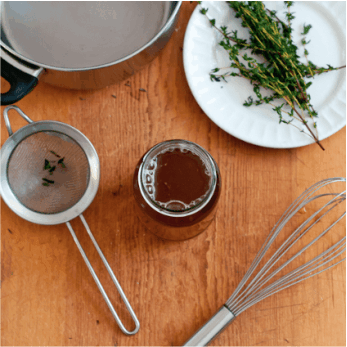What is Thyme Oil?
Thyme oil is an essential oil derived from the thyme plant.
Thyme plants are native to the Mediterranean region of Europe, but they are also found in other parts of the world with a similar climate, such as North Africa and parts of Asia.
What does Thyme Oil smell like?
When smelling thyme oil, you can expect a bold, assertive scent that is sure to leave a lasting impression on your senses.
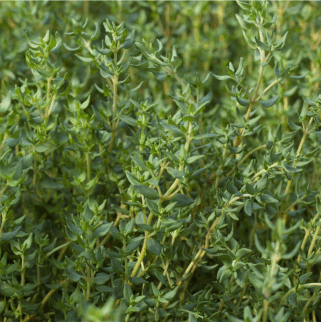
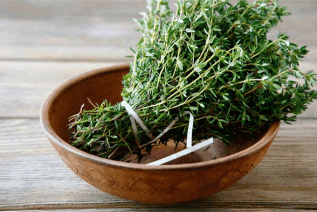
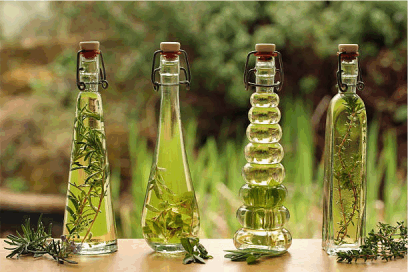
Thyme oil has several industrial uses due to its various properties, including
its strong antimicrobial and antifungal properties, as well as its appealing fragrance.
Thyme Oil
Industrial Uses- Cosmetics: Thyme oil is used in cosmetic products such as soaps, shampoos, and perfumes due to its pleasant fragrance.
- Food industry: Thyme oil is used as a flavoring agent in the food industry. It is commonly used in meat products, such as sausages and salami, as well as in baked goods, sauces, and soups.
- Pharmaceuticals: Thyme oil is used in the production of various pharmaceutical products, including cough syrups, mouthwashes, and topical ointments due to its antimicrobial properties.
- Cleaning products: Thyme oil is added to cleaning products, such as disinfectants and detergents, due to its powerful antimicrobial properties.
- Agriculture: Thyme oil is used in agriculture as a natural pesticide to control pests and diseases in crops
Is Thyme oil a natural bug repellent?
Thyme oil has been found to be effective against a broad range of pests, including mosquitoes, flies, fleas, ticks, and moths. It is a safe and natural alternative to chemical insecticides and repellents, making it an ideal choice for those who prefer to use eco-friendly and non-toxic pest control methods.
How does Thyme oil repel bugs?
Thyme oil works by interfering with the nervous system of insects, which makes it difficult for them to feed, fly or even mate.
Thyme is an exceptional natural pest repellent that can help keep your home and garden free from pesky insects. Whether you’re dealing with mosquitoes, flies, fleas, ticks, or moths, thyme oil can be an effective and safe solution to keep them at bay.
Is Thyme Oil in Minus Bite Pest Repellents?
Yes, Thyme oil is an active ingredient in our all natural Ant Spray, Plant Spray, Rodent Spray and Snake Spray
Benefits of Using Cedarwood Oil on the Skin at the right concentration
Natural antiseptic: Thyme oil has natural antiseptic properties, making it effective at fighting bacteria and other pathogens that can cause skin infections.
Anti-inflammatory: Thyme oil has anti-inflammatory properties, which can help reduce redness, swelling, and irritation on the skin.
Antioxidant: Thyme oil is a potent antioxidant, which means it can help protect the skin against free radical damage that can lead to premature aging and skin damage.
Acne-fighting: Thyme oil contains compounds that can help control acne by reducing inflammation, fighting bacteria, and regulating sebum production.
Relaxation: Thyme oil has a calming and soothing aroma that can help promote relaxation and reduce stress levels.
Timeline of the Usage of
Thyme Essential Oil- Ancient Egypt (around 3150 BCE): Thyme was used by the ancient Egyptians for embalming and as a medicinal herb.
- Ancient Greece (around 300 BCE): Thyme was used by the ancient Greeks as a symbol of courage and bravery. They also used thyme in baths and burned it as incense to purify their homes and temples.
- Roman Empire (27 BCE – 476 CE): The Romans used thyme as a food flavoring and as a medicine. They also used thyme in baths and burned it as incense to purify the air.
- Middle Ages (476 CE – 1450 CE): During the Middle Ages, thyme was used as a medicinal herb and as a culinary herb. It was also believed to have magical properties and was used in various spells and rituals.
- Renaissance (14th – 17th centuries): Thyme was used by herbalists during the Renaissance as a remedy for various ailments, including coughs, digestive issues, and headaches.
- Modern times (18th century – present): Thyme continues to be used in modern times as a culinary herb, medicinal herb, and in aromatherapy. It is also commonly used as a natural insect repellent and in skincare products due to its antiseptic and anti-inflammatory properties.
Reading Material on Thyme Oil
YOUR GUIDE FOR COOKING WITH THYME
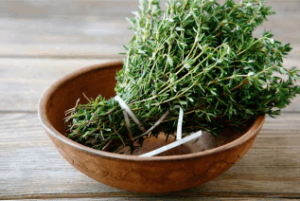
The Uses of Thyme Oil for Health
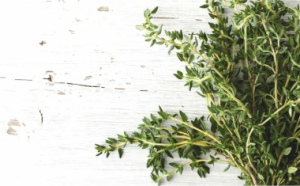
MORE STORIES…
Traditional Bug Sprays and Chlorine:
A Dangerous Combination
Minus Bite Publication Ι May 1, 2023
Breathe Easy:
How Using Natural Bug Spray Can Help Prevent Respiratory Problems
Minus Bite Publication Ι May 2, 2023

Get the Minus Bite’s Newsletter
Good deals, great advice & essentially necessary.

References:
Baratta MT, et al. Antimicrobial and antioxidant properties of some commercial essential oils. Flavour Fragr J. 1998;13(4):235-244.
Sienkiewicz M, et al. The potential of use basil and rosemary essential oils as effective antibacterial agents. Molecules. 2013;18(8):9334-9351.
Schnaubelt K. Medical Aromatherapy: Healing with Essential Oils. Berkeley, CA: Frog, Ltd.; 1999.
Leydet-Quilici H, et al. Thymus vulgaris essential oil: chemical composition and in vitro antimicrobial activity. Lett Appl Microbiol. 2000;30(5):378-381.
Juergens UR, et al. Anti-inflammatory activity of thyme oil in a croton oil-induced mouse ear edema model. Pharmacology. 2001;64(1):25-29.
Ali B, et al. Essential oils used in aromatherapy: A systemic review. Asian Pacific Journal of Tropical Biomedicine. 2015;5(8):601-611.
